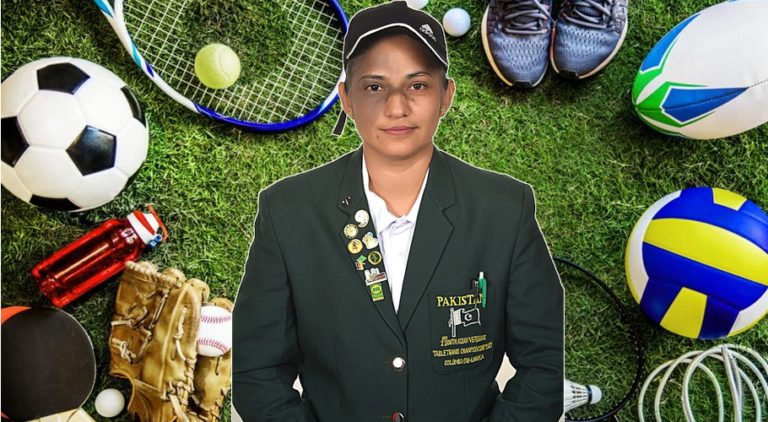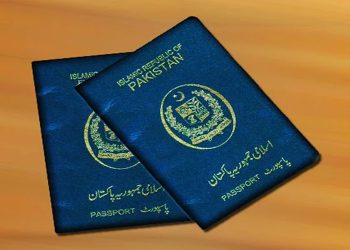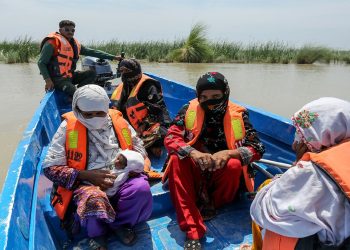There is no doubt that Pakistan has immense talent in sports. Despite the lack of support and official recognition, our athletes are making a name for themselves and their nation.
Pakistan women have also shown their talent in sports. One inspiring woman is Qudsia Raja, who is the first female international tennis and table tennis referee in Pakistan. She is also a well-known player and has performed in seven national competitions.
MM News organized a meetup to discuss her achievements and the state of sports in the country.
MM News: When and why did you decide to play sports?
Qudsia Raja: The decision to enter sports was destined for me. After the sudden death of my father, since I neither had much education or skills, I decided to play sports. I started playing after matric and participated in sports during college. When it came time to step into practical life, the field of sports was more suitable for me as a career. I became an athlete and started playing in 1990 and working in 1997. After playing for seven years, I eventually became a professional player.
MM News: Which sports have you participated and what awards have you won?
Qudsia Raja: I competed in almost all inter-school and inter-collegiate sports. In athletics, I participated in 100 meters, 100m hurdles, 200m, and 400m races. Although I wasn’t interested in running, I also participate in 800m long race. I took part in the school throwball championship in 1989 and participated in all sports including throwball, netball, basketball, badminton, in athletics took part in discus throw, javelin, long jump, high jump as well as table tennis and tennis.
I have the honour of being the only female official in Pakistan to have officiated at the national level in seven sports federations of Pakistan. I have served in many events including table tennis and ITTF junior tennis competitions. I have only officiated in table tennis abroad. I have umpired during the Davis Cup in Pakistan but have not officiated tennis overseas.
MM News: What do you want to do for young people at the grassroots level?
Qudsia Raja: At an early stage, when we were playing our coaches used to guide us. The job of a coach is not to teach you but make you play. We didn’t have the best learning but if Allah Almighty gives me an opportunity, I will create a platform for young boys and girls where they can develop their skills. Most players know how to play their sport but face other issues. I also faced such a situation at university level. We launched a Sports Awareness Program and its goal was to teach basic sports skills to children in schools, colleges and orphanages.
MM News: Did you enjoy more as a player or an umpire?
Qudsia Raja: As an athlete, I used to enjoy playing but being an official has its own charm. Even today, I fulfill my passion by playing. An umpire commands more respect even though players who lose the match are never satisfied with your decision. Many players are very aggressive for a single point but enjoy both fields as it has been my passion.
I wish that just like Aleem Dar was declared the best cricket umpire in the world, I should also become the international umpire of a sports federation in Pakistan. The Tennis Federation has given me a chance and I hope to become the best female umpire in tennis.
MM News: What are the barriers for girls to participate in sports?
Qudsia Raja: The biggest obstacle for girls in Pakistan to get into sports is their own family. If you have the support of your family and your parents are with you, then things are easy for them. Girls are not left behind in any field including sports. The only problem is that we do not provide the opportunity for talent to flourish.
MM News: What is the reason for declining sports in Pakistan?
Qudsia Raja: In the past, we have individuals in coveted positions who understood the importance of sports and cared for the honour and dignity of the nation. Today, these peoples are not working for the sake of sports but for themselves. We have eliminated the platform, departmental teams are gone, school and college sports are over. Until we revive them and start investing in players, we cannot improve the condition.
MM News: Why has Pakistan failed to win a medal in the Olympics?
Qudsia Raja: The Olympics is an event for which preparations are made for years. The world is already planning for the next competition but Pakistan has a bizarre system. The year Olympics are supposed be held here, we are still thinking on selecting an athlete who will represent. The reason for our decline is athletes do not have a chance to flourish and their abilities are suppressed.
Pakistani athletes who have performed well in the recent Olympics including Arshad Nadeem and Talha Talib did on their own. The federation gave them may at most a coach. Arshad Nadeem came close to victory but if the federation had worked and given him facilities, his talent would have emerged in four years. This gold medal would have belonged to him but unfortunately, we do not even bother to support or provide facilities. Pakistani players showing their talents in other countries their talent is wasted here.
MM News: Do sports federations guide players in the right direction?
Qudsia Raja: There is no sports federation providing any guidance to the players. I played volleyball at national level but did not see any guidance. I umpired for seven federations but left since the decisions were made on the basis of personal likes and dislikes and those who can pay or have family sources.
The Pakistan Table Tennis Federation had conducted a basic umpiring course in 2007 and senior umpire Ghansham Iyer from India was invited. I was ranked third in the whole country. He advised me to become a woman table tennis umpire. A foreign umpire encouraged me but my federation left me. I can’t stand favoritism and that is why after serving as umpire in seven federations, I have disassociated myself due to unprofessional attitudes.
MM News: Is there a lack of funds for sports in Pakistan?
Qudsia Raja: There is not and has never been a lack of funds for sports in Pakistan. There are only cries of lack of funds because our pockets are not full.
MM News: What should be done to improve sports and save future generations?
Qudsia Raja: If we want to save the young generation from social, we have to make sports culture flourish. This is not common and people don’t get jobs in sports. In a developing country like Pakistan, we have to support our families. Until we free our children from social worries, they will never be able to perform. We need to attract the younger generation to sports. We only focus on one or two sports but need to promote more including basketball, tennis, boxing, billiards, squash, badminton, volleyball, gymnastics, and table tennis. Only then can we save the young generation and build a better society.
MM News: Can Pakistan regain its lost glory in sports?
Qudsia Raja: Pakistan lost its place in sports itself and can only regain it themselves or even go beyond. Today we have more facilities in the modern age. When we played in 1992 Cricket World Cup, we didn’t have any facilities but now everything is within reach. No one can stop Pakistan from regaining its lost glory provided that we strive for it.





































